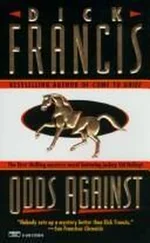He would live, in other words, the life that Elsa Bruner had wanted. It was her ideal scenario: self-reliant, sovereign, irreproachable. Having created his own world, he’d be protected from the world. And he began to make out, like a distant cloud formation, the vast shape of her loneliness.
It occurred to him then, as he pushed the wheelbarrow toward the funeral pyre of telephone poles and wiring, the wheels twisting restively on their axles, jarring on every divot and pebble. It occurred to him that he now understood another fact about Elsa Bruner, his paragon of solitary idealism, of single-minded devotion to higher purpose. He understood now that Elsa Bruner was dead.
* * *
It was three days after the encounter with Cassie and Ronald — or was it four? — when he discovered the tree.
He had gotten into the habit of eating dinner at what must have been five o’clock. He couldn’t help it; by that time he was too starving to hold off any longer. But it gave him an hour of sunlight to kill before he could sleep. That was too long without working. These were the hours when, at Fitzsimmons Sherman and FutureWorld, he’d been at his most productive. Unhassled by the constant shocks of the business day — news reports, meetings, e-mails — he could concentrate on his scenarios. But now what was there to do? He had finished planting the seeds, after all, and he’d cleared the second and third floors of debris. Fortunately the wall could use more work. Though “wall” wasn’t the most accurate term for the uneven, steadily accumulating pile of rubble that rose in clumpy hillocks around the perimeter of the property. Every object that remained, every stray plank, roof tile, and cement block within about a hundred yards that he could stack in his wheelbarrow, he had added to his barricade. He hadn’t yet foraged in the marsh — the ground was too uneven for the wheelbarrow — but he had seen plenty of dead wood there. The smaller sections he could haul away by himself, as long as they weren’t too splintery. And for the most part they weren’t, the turbulence of the floodwaters having smoothed the wood, sanding down its burrs and jagged edges.
In the vault he found what he was looking for: the ax. It was heavier than he’d expected, tugging aggressively at his shoulder as he lifted it. It was a powerful weapon. Walking around the property, swinging the ax, he felt for the first time as if he owned the land. The Canarsie Bank Trust, as well as the adjacent plot, whatever it had been, was his domain. His shoulder began to smart. He paused to rub it.
He walked gingerly to avoid cutting himself. Navigating the matted swamp grass and the chaotic brambles, he entered the marsh. Here there were only the crushed branches of smaller trees, nothing substantial. But farther down, just past where his little bathing pool debouched into a wider creek, the trunk of a fallen oak lay on the shore. It was not native to that strip of land, but the storm had deposited it there and divested it of its crown. It was perfect. He wouldn’t be able to drag it home, you’d need a tractor for that, but he could chop it into thick stumps and use those to reinforce his wall’s foundation.
As he approached he saw that the tree had split open near its midpoint. Where the trunk had cracked there was a wide crevasse, chocolate near the outer levels and reddening farther down. He raised his ax, aiming the blade. But he couldn’t follow through. Something was moving in the tree. He bent over to examine it more closely, and then he was on the ground beside it, and then his head was nearly inside the tree.
The first thing he noticed were the mushrooms, orange with caps the size of buttons, projecting from the walls of the crevasse. Their fleshy undersides were lined with gills that ruffled like lace. These gills secreted a toothpasty substance that branched into a plexus of lines that descended deep into the trunk’s core. But that was just the beginning. When Mitchell moved closer, he saw eruptions of brightly petaled clover; exotic spindly-legged spiders with bodies the same exact hue as the tree itself; a flesh-colored worm as long as his arm; a fiery procession of red mites snaking between piles of school-bus-yellow spores and thick, translucent bubbles of slime; a downy pink fungus like a speck of cotton candy; a bark beetle sheathed in an iridescent shell; and canals of thick syrup in which tiny flies had gotten stuck, flapping their broken wings and twitching in panic. What had appeared to be no more than a dead log was everywhere crawling, munching, slurping, rotting, liquefying, cannibalizing — a grotesque insectopolis. As his shadow moved across the log, the bark beetle, sensing a larger presence, folded completely into itself — head into shell, encased and protected, a gray oval disk without edges or openings. Protected against its predators. Protected even against the air.
He tried not to think about Elsa, where her body now lay, in what state of decomposition. But then the awful flesh-colored worm, propelled by its wet, clenching suckers, glided sinuously along the surface of the log, and Mitchell felt that he was going to throw up.
He rose, unsteady on his feet, and grabbed the handle of the ax. This time he would bring it down with all his force, explode the decayed wood, spattering worm pulp and tree rot and larva across the grass. But now the ax was much too heavy. The poll dug into the small of his back and he couldn’t begin to hoist it over his head.
Did he really want to obliterate this festering micro-universe? Or might it be nicer simply to join it? To stretch out under the sky until night came and all the creeping things mistook him for a second log to explore and infest. If he were to lie there, simply lie there on the wet ground until he lost consciousness, how long would it take for anyone to notice? Who would discover his absence? Who would care? If Hank or the new settlers didn’t find him in the bank building, they’d assume he had given up and run back to New York. Days would pass, maybe weeks, before someone found him. By then his corpse would have already merged, like the rotting oak, into the marshy soil.
Gingerly he let himself down beside the log. His ears were full of the sound of the creek washing against the shore just several feet away, and above him spread the sky, more vast than any he’d ever seen in New York. That was another result of the flood and its destruction: it had not only wiped clean the ground, it had also expanded the sky. It used to steal through the narrow slivers between skyscrapers, a petty thief; now it had been restored its dominion. It was radiant with its pride.
There was only one stubborn cloud, a cumulonimbus, directly overhead. It was an odd cloud: it didn’t seem to be drifting at all. It just sat, motionless, looking down at him. Mitchell lay there for what seemed like ten, even fifteen minutes, but the cloud refused to move. How was this possible? It didn’t expand or contract, just stayed fixed in the highest part of the sky. And it really was watching him, wasn’t it? Just staring at him, waiting for him to move.
“You first,” said Mitchell without sound.
“Nope,” said the cloud.
“I got nowhere to be.”
“That’s two of us.”
“Fine,” said Mitchell. “Suit yourself.”
Even as the swamp flies, or whatever they were, started flapping around his eyes, as the bark beetles scaled his bare arms and the grass scratched at his neck, he would stay there. This was his land now. If he wanted to lie on it all night long, or even for weeks, until he wasted away and his flesh sloughed free from his bones — well, if he wanted to lie there for eternity, nobody could stop him, certainly not an intangible mass of vapor in the upper atmosphere.
But then something very peculiar happened. Almost imperceptibly, the cloud, cowed by his will, began to drift away.
Читать дальше












